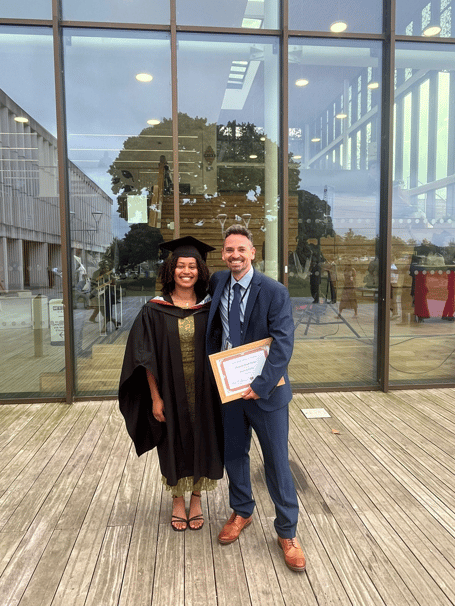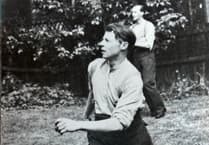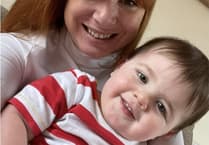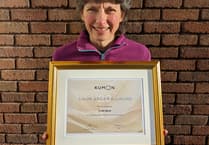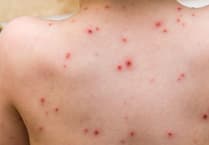A Manx healthcare worker has been recognised by Lancaster University for his role in supporting hundreds of medical students during their placements on the island.
Mark Roberts, Medical Undergraduate Co-ordinator at Noble’s Hospital, was presented with the university’s Clinical Staff Prize at this year’s graduation ceremony. The award is voted for by students to acknowledge staff who have made a significant difference to their clinical training.
Mr Roberts has been helping to facilitate placements since 2016. In that time he has supported more than 750 medical and physician associate students as they relocate to the island for part of their studies. His work involves acting as a link between medical schools and Noble’s Hospital, making sure placements run smoothly and that student wellbeing is prioritised.
He said: ‘I’ve been with students through many celebratory moments, but equally many moments to commiserate. It’s a difficult degree they’re undertaking, so establishing a good rapport with each student early on really is key. I don’t ever want them to feel like just another medical student, as they often do on placements with larger student numbers.’
The role also covers practical arrangements. Given the island’s remote location and limited housing market, accommodation must be provided for every student who comes to Noble’s. Mr Roberts said he had been fortunate to work with local charitable trusts to secure access to additional housing to meet this demand.
He works alongside Dr David Frazer, emergency department consultant and undergraduate clinical lead, and physician associate Matt Mustain, who leads on students’ clinical skills and simulation training. Together, they coordinate placements from six partner medical schools, across three-year groups, as well as electives from more than 40 medical schools across the UK and Ireland.
As a result of the programme, more than 30 students have gone on to return to the island for employment or training. Many others have expressed interest in returning, though a national random allocation system for foundation training means not all are able to do so.
Mr Roberts said his role was only one part of a wider effort across Manx Care: ‘A larger part of the credit goes to staff of all grades and professions who assist with the programme, taking students under their wing and providing education and training with fantastic opportunities, including all of our clinical and educational supervisors.
‘It’s a pleasure to play a central part in something that can have such a big impact on a small island. The medical undergraduate programme generally receives very high scoring feedback, which puts us on the map for possible future employment, either for trainees or those who are fully qualified.’
Reflecting on the importance of bringing young medical professionals to the island, he added: ‘As someone who grew up on the Isle of Man, I feel it has a lot to offer. We should always be actively looking to support young people both returning to the island and relocating here. Our future depends on them.’
